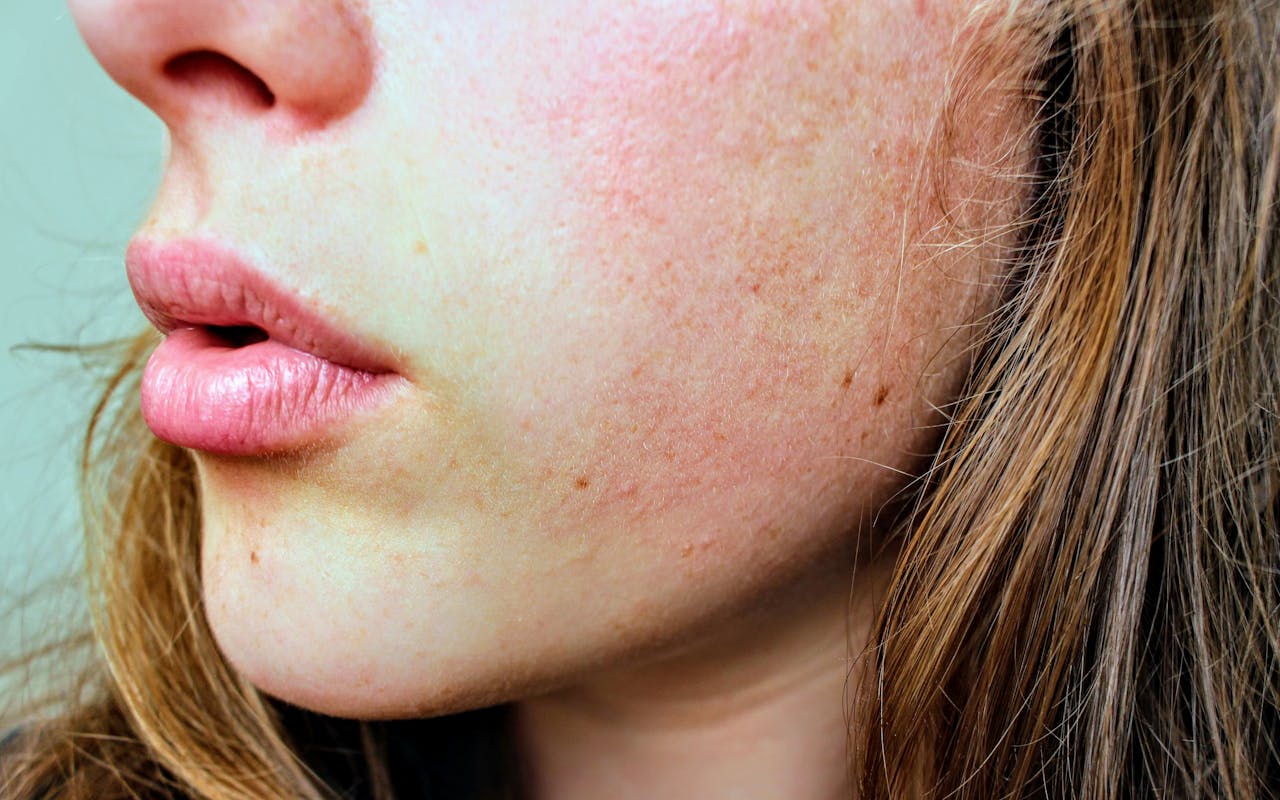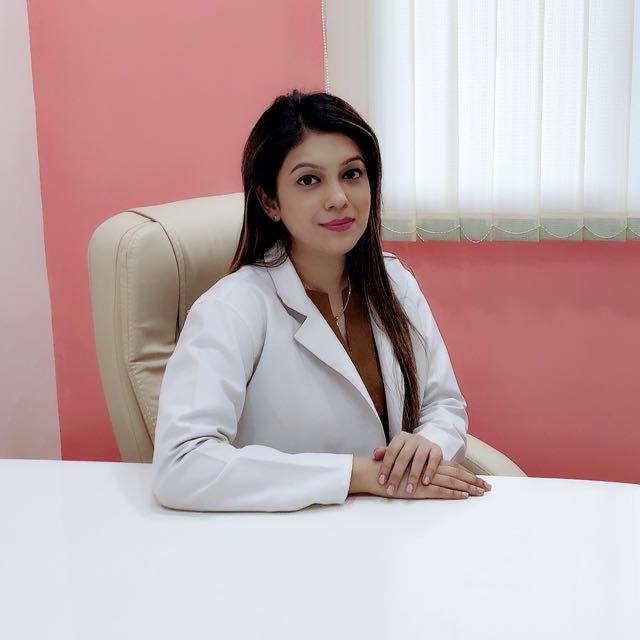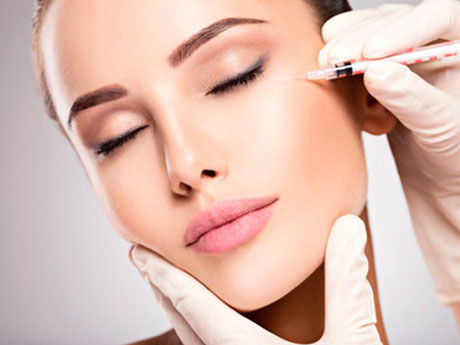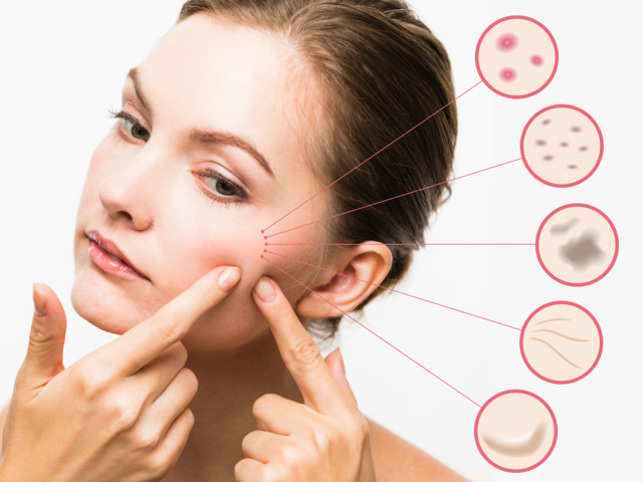HORMONAL ACNE, PCOS AND YOUR SKIN: A DERMATOLOGIST’S PERSPECTIVE FOR INDIAN WOMEN
- August 7, 2025 at 9:22 pm
- Skin Care,Face Care,Health

Acne is one of the
most common dermatological complaints in India, affecting individuals across
all age groups. However, when acne persists or worsens in adult women,
particularly around the jawline, chin and cheeks, it often points towards a
hormonal imbalance. One of the most frequent underlying causes of hormonal acne
in women of reproductive age is Polycystic Ovary Syndrome, commonly referred to
as PCOS.
At Elan
Skin Care Clinic in Navi Mumbai, we regularly treat patients who are dealing with
acne caused by hormonal fluctuations. Understanding the connection between PCOS
and your skin is essential for effective and long-term management.
What is
Hormonal Acne?
Hormonal acne is acne
that results from changes in hormone levels, particularly androgens like
testosterone. These hormones stimulate the sebaceous (oil) glands to produce
excess sebum, which mixes with dead skin cells and clogs pores. The result is
comedones (blackheads and whiteheads), inflamed pimples, cysts and nodules that
are often deep, painful and resistant to over-the-counter treatments.
Hormonal acne
typically appears in a specific pattern, often around the lower face, chin,
jawline and neck. It tends to flare up during menstruation, pregnancy, stress
or in conditions like PCOS that involve persistent hormonal disruption.
Understanding
PCOS and Its Effect on Skin
Polycystic Ovary
Syndrome is an endocrine disorder that affects nearly one in ten women in
India. It is characterised by irregular menstrual cycles, ovulatory
dysfunction, and elevated androgen levels. These hormonal imbalances can
significantly affect the skin in the following ways:
1. Increased Sebum Production: Elevated androgens stimulate the sebaceous
glands, leading to oily skin and clogged pores.
2. Cystic Acne: Deep,
painful cysts may form beneath the skin surface, especially in the lower facial
area.
3. Post-Inflammatory
Hyperpigmentation: Due to the melanin-rich nature of Indian skin, acne often
leaves behind dark marks or pigmentation even after healing.
4. Hirsutism and Hair
Thinning: Many women with PCOS also experience excessive facial and body hair
along with thinning scalp hair, which further affects confidence and quality of
life.
Diagnosis
and Medical Evaluation
At Elan Skin Care
Clinic, we take a multidisciplinary approach to diagnosing and managing
hormonal acne. A comprehensive medical history is taken, and relevant blood
tests such as total and free testosterone, DHEA-S, LH, FSH, and fasting insulin
levels may be advised. In some cases, a pelvic ultrasound is also required to
confirm PCOS.
It is important to
understand that treating hormonal acne requires more than just topical
skincare. A holistic plan is essential, involving both dermatological and
gynaecological inputs.
Treatment
Options for Hormonal Acne and PCOS-Related Skin Issues
1.
Topical Therapies
Medications such as
adapalene, benzoyl peroxide, and clindamycin are often prescribed to reduce
bacterial load and inflammation. For patients with pigmentation, ingredients
like azelaic acid and niacinamide may also be recommended.
2. Oral
Medications
In
cases of moderate to severe acne, oral medications may be required. These
include:
·
Oral
contraceptive pills to regulate hormone levels.
·
Anti-androgen
medications such as spironolactone.
·
Insulin-sensitising
agents like metformin, especially in insulin-resistant patients.
These medications
must be prescribed and monitored by qualified doctors and are not suitable for
self-medication.
3.
Lifestyle and Diet
Patients are advised
to reduce consumption of high-glycaemic index foods, dairy products and refined
carbohydrates, which can worsen insulin resistance and acne. A balanced diet
rich in fibre, lean protein, and omega-3 fatty acids is beneficial. Regular physical
activity also helps regulate hormones and improve insulin sensitivity.
4.
In-Clinic Procedures
Advanced
dermatological treatments can accelerate acne clearance and address
pigmentation.
These include:
·
Chemical
peels for acne and post-acne marks.
·
Carbon
laser peels for oil control and inflammation.
·
Microneedling
with serums to promote skin healing.
·
Laser
hair reduction for hirsutism associated with PCOS.
All procedures at
Elan Skin Care Clinic are performed under medical supervision, ensuring safety
and efficacy.
Psychological
Impact and Support
Chronic acne,
especially on the face, can severely impact emotional well-being. Anxiety, low
self-esteem and social withdrawal are common. At our clinic, we emphasise not
just clinical treatment but also patient education and support throughout the
recovery journey.
Conclusion
Hormonal acne due to
PCOS is a complex condition that affects more than just your appearance. It
reflects deeper metabolic and hormonal imbalances that need a well-rounded
treatment approach. Indian skin requires tailored care that considers our
specific climate, pigmentation tendencies and hormonal profiles.
Consult
with Our Experts
For
personalized skincare advice and treatments during the monsoon, book a
consultation with our experienced dermatologists.
ELAN
SKIN CARE CLINIC
Ground Floor, Ekdant CHS, Shop No 4 and
5,
Plot 53 and 54, Sector-19, Kharghar,
Navi Mumbai, Maharashtra 410210
Phone: 099200
16171
Website: www.elanskincare.in
If you
are struggling with persistent acne or suspect PCOS is affecting your skin,
schedule a consultation at Elan Skin Care Clinic. Our dermatologists are here
to help you regain your skin health with expertise, compassion and care.
Author Details

I am a professional blogger interested in everything taking place in cyberspace. I am running this website and try my best to make it a better place to visit. I post only the articles that are related to the topic and thoroughly analyze all visitors’ requests to cater to their needs better.
Most Popular Posts

- October 26, 2018
- Botox
5 REASONS TO CONSIDER BOTOX INJECTIONS TO IMPROVE YOUR FACIAL
APPEAR
